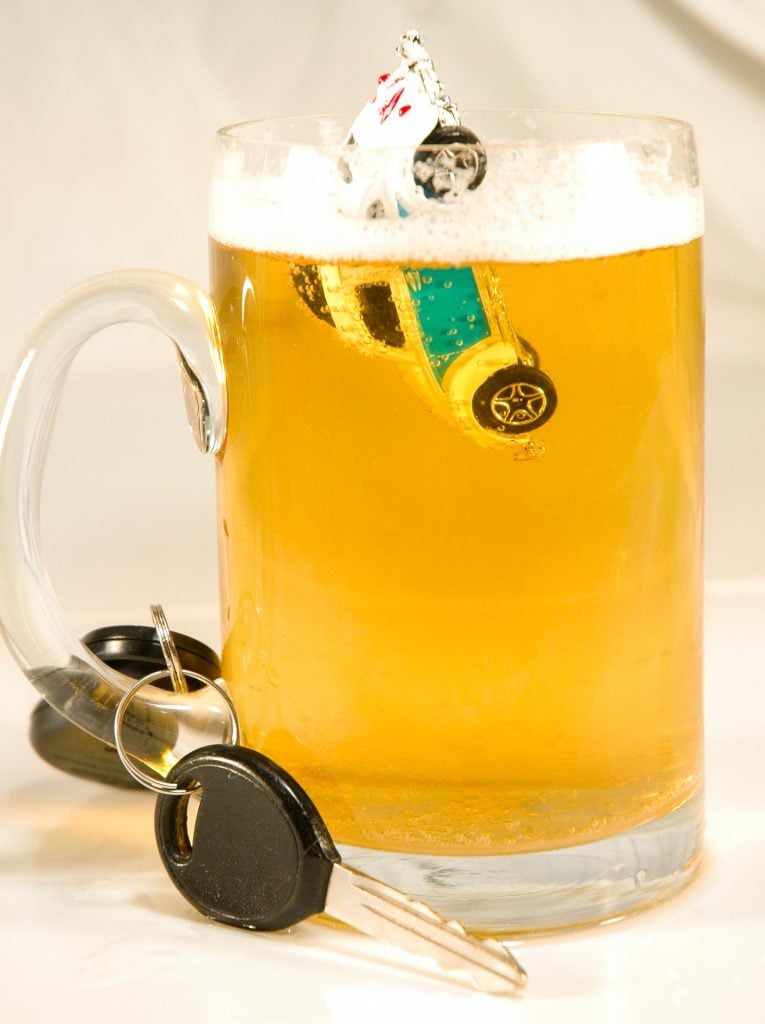Getting a DUI (Driving Under the Influence) is a serious offense that can have far-reaching consequences on your life. It not only puts your safety and the safety of others at risk, but it can also lead to legal penalties, financial burdens, and a tarnished driving record. In this article, CheapInsurance.com will delve into what happens when you get a DUI, the penalties in different states, and how you can work towards repairing your driving record. We’ll also explore the specific processes in various states, including Florida, Texas, Arizona, Minnesota, California, New Jersey, Georgia, and Colorado.

The Consequences of Getting a DUI
The Far-Reaching Impact of a DUI Conviction
Facing the consequences of a DUI (Driving Under the Influence) charge can be a life-altering experience. The repercussions are not limited to legal penalties alone; they extend into various aspects of your life, often leaving a trail of difficulties that can persist for years. Let’s delve deeper into the wide-ranging consequences that accompany a DUI conviction.
1. Legal Penalties Beyond the Surface
When the flashing lights of law enforcement signal a DUI charge, the immediate and severe legal penalties can be daunting. The specifics vary from state to state, but they generally encompass more than just a financial burden. Fines can be substantial, draining your resources at an already stressful time. License suspension is another potential blow, depriving you of your freedom to drive and making day-to-day tasks significantly more challenging.
For many, the mandated participation in alcohol education programs is an unexpected requirement. These programs aim to educate offenders about the dangers of impaired driving, but they also take up valuable time and can lead to further financial strain. Probation, with its set of restrictions and oversight, becomes an additional layer of stress.
The most daunting consequence for some is the looming possibility of jail time. The duration varies based on factors such as the severity of the offense and prior convictions. Incarceration not only affects the individual but also their loved ones, creating a ripple effect of emotional and financial strain.
2. The Pervasive Impact on Finances
A DUI conviction reverberates through your financial landscape, often in ways that are not immediately apparent. Beyond the upfront fines and legal fees, the potential long-term financial repercussions can be staggering. One of the most notable hits to your wallet comes in the form of increased insurance premiums. Insurers view DUI convictions as red flags, signifying a higher risk of future accidents. As a result, premiums can skyrocket, rendering your existing policy unaffordable or even leading to policy cancellation. In many cases, individuals are forced to seek out specialized SR22 insurance, which comes with its own exorbitant costs.
3. A Lifelong Mark on Your Record
Perhaps one of the most enduring consequences of a DUI conviction is the stain it leaves on your criminal record. This mark can cast a shadow over numerous aspects of your life. Employment opportunities become scarcer as many employers conduct background checks, and a DUI conviction might raise concerns about your reliability and responsibility.
Securing housing can also become a challenge. Landlords often run background checks on potential tenants, and a DUI conviction might lead them to question your suitability as a renter. Even securing loans or favorable interest rates can prove more difficult, as lenders might perceive you as a higher risk.
4. The Technological Leash: Ignition Interlock Devices
Certain states take additional measures to prevent repeat offenses by requiring individuals with DUI convictions to install ignition interlock devices in their vehicles. These devices act as a technological safeguard, preventing the car from starting if alcohol is detected on the driver’s breath. While aimed at enhancing safety, these devices can feel intrusive and are a constant reminder of the mistake made.
5. Shattered Professional Prospects
The impact of a DUI conviction extends to the professional realm, and certain careers can be entirely out of reach due to a tarnished record. Jobs that involve driving are an obvious casualty, but the consequences can ripple into other fields. Many employers prioritize a clean driving history, particularly if the role involves company vehicles or transportation of any kind.
Summary
When you’re charged with a DUI, the consequences can be immediate and severe. These consequences typically include:
- Legal Penalties: DUI laws vary from state to state, but they often involve fines, license suspension, mandatory alcohol education programs, probation, and even jail time.
- Increased Insurance Premiums: A DUI conviction can lead to significantly higher car insurance premiums or even the cancellation of your policy. A DUI conviction may even result in the need to carry SR22 insurance.
- Criminal Record: A DUI conviction results in a criminal record, which can affect your ability to secure jobs, housing, loans, and more.
- Ignition Interlock Devices: Some states may require you to install an ignition interlock device in your vehicle, which prevents the car from starting if alcohol is detected on your breath.
- Impact on Employment: Certain jobs, especially those requiring a clean driving record, may become inaccessible due to a DUI conviction.
The aftermath of a DUI conviction is far-reaching and profound. It encompasses legal penalties, financial strains, a permanent mark on your record, the imposition of ignition interlock devices, and limitations on professional opportunities. Recognizing the full scope of these consequences underscores the importance of making responsible choices behind the wheel and seeking legal counsel if faced with a DUI charge.

image credit – Negative Space
DUI Penalties in Different States
Let’s take a look at the specific penalties for DUI offenses in the mentioned states:
- Florida: In Florida, a first-time DUI conviction can result in fines ranging from $500 to $1,000, up to six months of probation, up to six months of jail time, and a license suspension of up to one year. For more details, visit the Florida DMV website.
- Texas: Texas imposes penalties such as a fine of up to $2,000 for a first-time DUI offense, a license suspension of up to one year, and mandatory attendance in an Alcohol Education Program. Find more information on the Texas DMV website.
- Arizona: A first-time DUI in Arizona can lead to fines of over $1,500, a 90-day license suspension, mandatory alcohol education, and installation of an ignition interlock device. Visit the Arizona DMV for further details.
- Minnesota: Minnesota enforces penalties including a 90-day license suspension, possible jail time of up to 90 days, fines exceeding $1,000, and mandatory attendance in an education program. Check the Minnesota DMV for more information.
- California: In California, penalties for a first DUI offense may include fines of up to $2,000, a license suspension of up to six months, and attendance in a DUI program. Visit the California DMV website for specifics.
- New Jersey: New Jersey can impose fines ranging from $250 to $500 for a first DUI offense, along with a three-month license suspension and mandatory attendance in an Intoxicated Driver Resource Center. Find more details on the New Jersey MVC website.
- Georgia: A first DUI offense in Georgia can result in fines ranging from $300 to $1,000, up to one year of probation, and mandatory attendance in a Risk Reduction Program. Refer to the Georgia DDS website for additional information.
- Colorado: Colorado penalties include a nine-month license revocation for a first-time DUI, fines, possible jail time, and mandatory alcohol education. Visit the Colorado DMV for further details.

Repairing Your Driving Record After a DUI: A Step-by-Step Guide
Receiving a DUI (Driving Under the Influence) charge can have profound and lasting consequences on your driving record. However, it’s not the end of the road. With determination and a commitment to making positive changes, you can work towards repairing your driving record and regaining your driving privileges. While the steps involved may differ slightly depending on your state, the following comprehensive guide outlines the general process for repairing your driving record after a DUI conviction.
Step 1: Serving Legal Penalties
The first critical step on your journey to repair your driving record is to fulfill the legal penalties imposed by the court as a result of your DUI conviction. These penalties can include:
- Fines: Pay any fines mandated by the court. Fines can vary widely based on your location and the severity of the offense.
- Community Service: Complete any required community service hours as ordered by the court. This may involve working with local nonprofit organizations or performing tasks to benefit the community.
- Alcohol Education Programs: Attend and complete any alcohol education or counseling programs mandated by the court. These programs are designed to educate individuals about the dangers of driving under the influence and help prevent future offenses.
Step 2: License Reinstatement
Once you’ve fulfilled the legal penalties, you’ll need to follow the specific process outlined by your state’s Department of Motor Vehicles (DMV) to reinstate your driver’s license. This process can vary from state to state, but generally involves:
- Waiting Period: Most states impose a mandatory waiting period during which your license remains suspended. This period can range from a few months to a year or more, depending on the circumstances of your DUI.
- Application for Reinstatement: Submit an application for license reinstatement to your DMV. This often involves completing a formal application, paying reinstatement fees, and providing any required documentation.
- Additional Requirements: Depending on your state, you might need to provide proof of completion of alcohol education programs or other requirements before your license is reinstated.
Step 3: Maintaining a Clean Record
After successfully reinstating your driver’s license, it’s crucial to prioritize safe and responsible driving behaviors to avoid further issues. Follow these guidelines:
- Obey Traffic Laws: Adhere to all traffic laws, including speed limits, traffic signals, and seatbelt usage.
- Avoid Alcohol and Drugs: Never drive under the influence of alcohol or drugs. If you’re unsure, it’s always better to find an alternative mode of transportation.
- Practice Defensive Driving: Be alert and cautious while driving. Avoid distractions, maintain a safe following distance, and anticipate potential hazards.
Step 4: Consider Legal Help
Navigating the complexities of the legal system and understanding the nuances of DUI laws can be challenging. Consulting with a lawyer who specializes in DUI cases can provide you with valuable guidance throughout the process. A knowledgeable attorney can help you understand your rights, explore potential legal options, and potentially mitigate the impact of the DUI on your record.
Summary
Repairing your driving record after a DUI is an ongoing journey that requires patience, dedication, and a commitment to making positive changes. By serving legal penalties, reinstating your driver’s license, maintaining a clean driving record, and seeking legal guidance when needed, you can gradually rebuild your driving record and move forward with a renewed focus on responsible driving. Keep in mind that the information provided in this guide offers a general overview, and the specific processes and requirements may change over time. For the most accurate and up-to-date information, consult the DMV website of your state.
Conclusion
A DUI can have significant and long-lasting effects on your life, but with the right steps and a commitment to responsible behavior, you can work towards repairing your driving record. It’s crucial to understand the consequences of a DUI, follow the legal processes in your state, and strive to maintain a clean record moving forward. Always seek legal advice if you find yourself in a situation involving a DUI, as the laws can be complex and vary from state to state.


